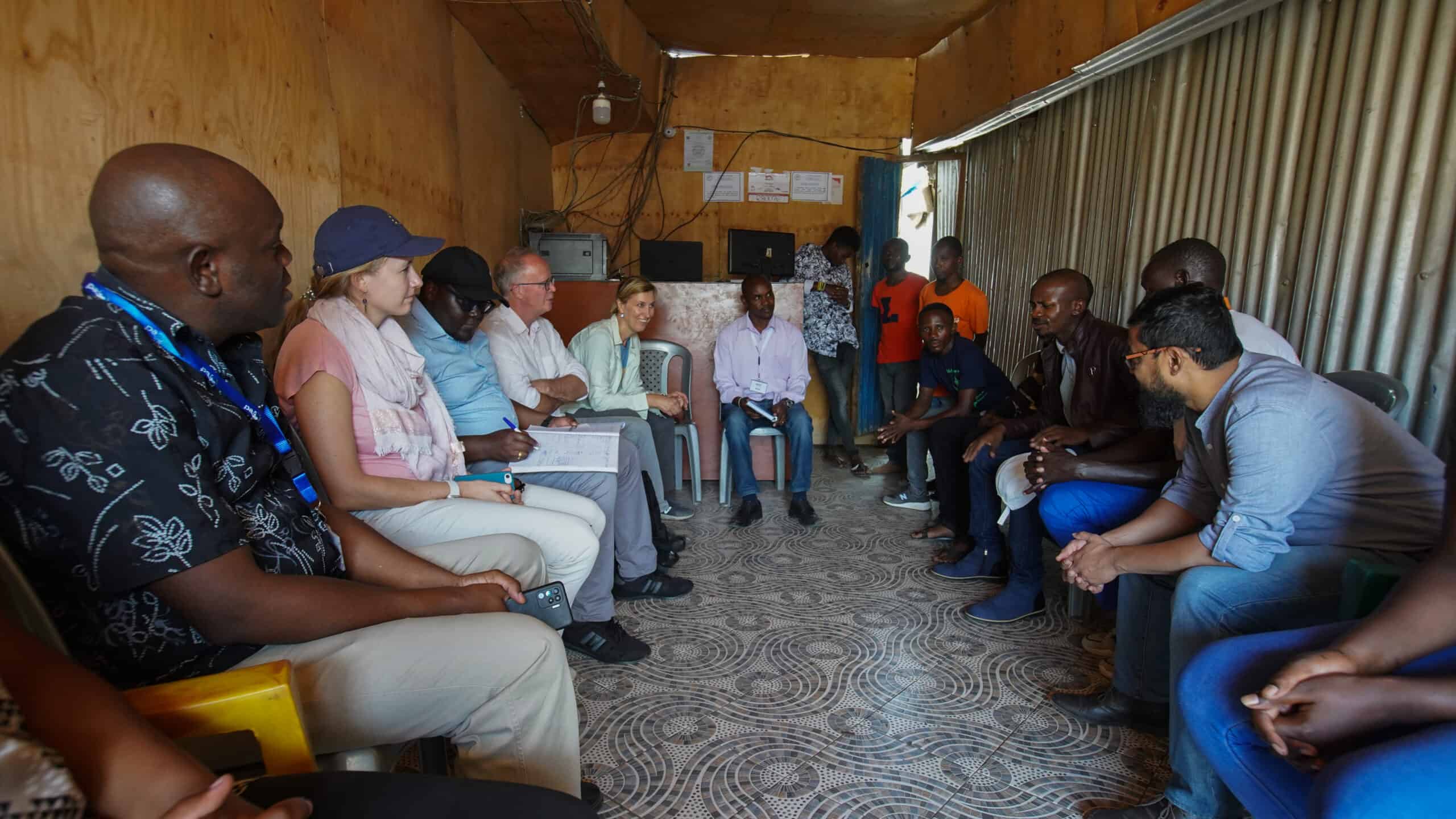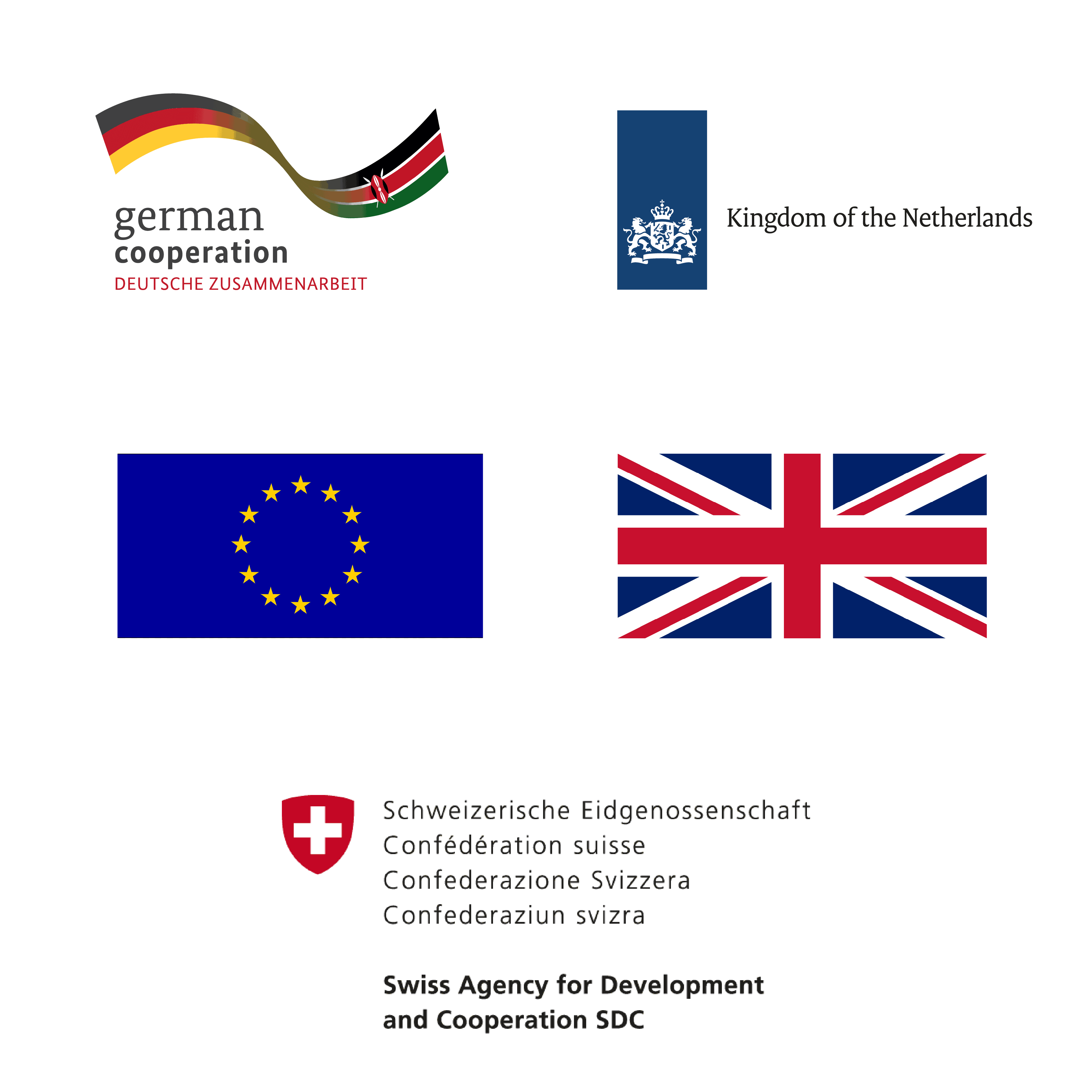
Kakuma Kalobeyei Challenge Fund is a five-year initiative that is generously supported by five development partners: The Ministry of Foreign Affairs of the Netherlands, the Swiss Agency for Development and Cooperation (SDC), the German Federal Ministry of Economic Cooperation and Development through KfW, and the UK’s Foreign, Commonwealth and Development Office (FCDO), and the European Union.
KKFC is generously supported by:

KKCF Implementation Partners
KKCF, a project of the International Finance Corporation (IFC) , is being implemented in partnership with Africa Enterprise Challenge Fund (AECF), The United Nations High Commissioner for Refugees (UNHCR) and Turkana County Government.

AECF
AECF is leading on the delivery of the project’s first component — the competitive business challenge drawing on their substantial experience managing challenge funds that incentivise early stage companies to scale up to reach under-served communities across Africa. AECF (Africa Enterprise Challenge Fund) is a leading non-profit development organization that supports innovative enterprises in the agribusiness and renewable energy sectors with the aim of reducing rural poverty, promoting resilient communities and creating jobs.
UNHCR
UNHCR’s role in KKCF is to provide information, support with logistics, identify entry points and facilitate private sector access to the refugee camp and settlement, and provide links to the broader innovative approach of the Comprehensive Refugee Response Framework (CRRF). They are also implementation partners of the second component’s Biashara Centre, a one-stop-shop offering county and national government services under one roof to be located in Kakuma.
Turkana County Government
Turkana County Government has been at the political forefront of refugee and host community economic integration in Kenya. KKCF is well aligned with the Turkana’s County Integrated Development Plan and The Kalobeyei Integrated Socio-Economic Development Programme (KISEDP). KISEDP is a Turkana Government led multi-stakeholder plan informed by the Global Compact on Refugees (GCR) to enhance the socio-economic environment and increase livelihood opportunities and self-reliance of refugees and communities that host them.